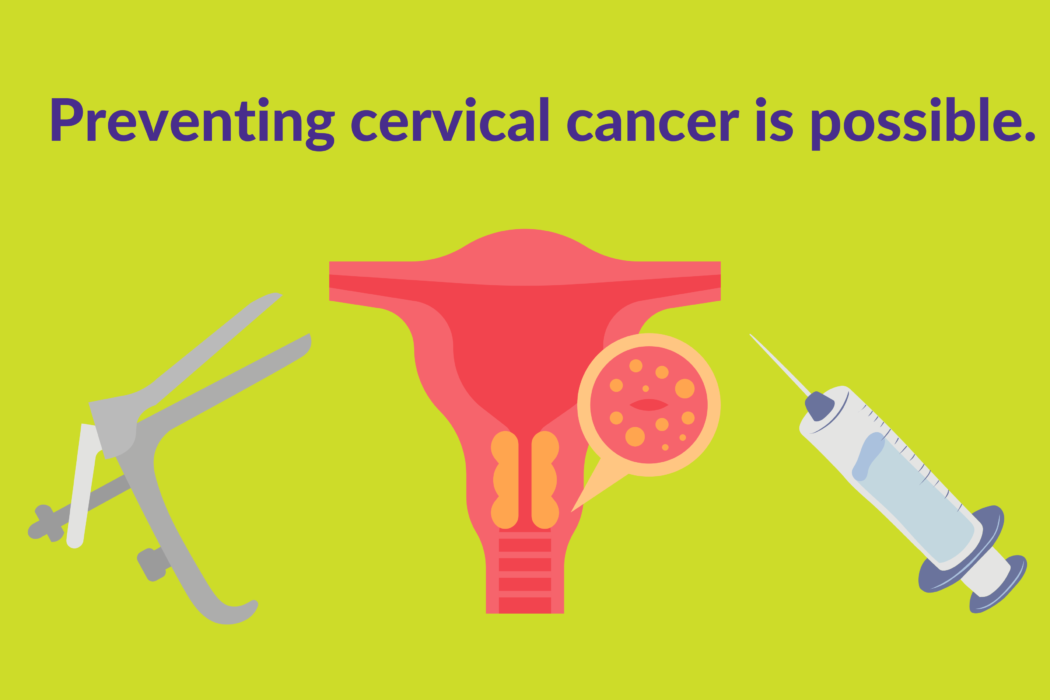Preventing cervical cancer is possible with screenings and immunizations

Cervical cancer was once the leading cause of death for women in the United States and the 4th most common cancer amongst women around the world[1]. Now, thanks to screenings and vaccinations, cervical cancer is far less deadly. There are two types of cervical cancer, squamous cell carcinoma and adenocarcinoma[2]. Most cervical cancers are caused by squamous cell carcinoma, also known as human papillomavirus (HPV). HPV is mainly spread through sexual contact.

There are two types of screenings that can help prevent and/or detect cervical cancer: the HPV test and a Pap smear. The HPV test looks for the virus that can cause changes in the cervix that lead to cancer. A Pap smear looks for the precancers on the cervix that might become cervical cancer if not treated[3]. The typical age to start getting Pap smears is 21. If your results are normal, your primary care provider may tell you that you can wait three years until your next Pap smear. It’s very important to get your Pap smears on time so that any signs of cervical cancer can be caught early.
Screenings are important to treat cervical cancer early, but there is a vaccine that can prevent you from getting sick in the first place. To prevent cervical cancer, we use the HPV vaccine, also called Gardasil. Almost all cervical cancers can be prevented by the HPV vaccine. It provides almost 100% protection from nine HPV types (6, 11, 16, 18, 31, 33, 45, 52 and 58)[4]. Children around age 11-12 should get their first dose of the vaccine with a second dose 6-12 months after[5]. Although, the vaccine can be given starting at age 9. Everyone up to age 26 is able to get the vaccine if they were not fully vaccinated already. This vaccine is not recommended for everyone older than age 26. HPV vaccines work best if given before exposure to HPV through sexual contact. The HPV vaccine is recommended for both girls and boys to prevent the spread of HPV.
HPV is the most common sexually transmitted infection (STI)[6]. Getting HPV does not necessarily mean you will get cervical cancer. Getting routine Pap smears can prevent cervical cancers. We have the tools needed to prevent cervical cancer. It takes about 15 to 20 years for cervical cancer to develop in women with normal immune systems but can take only 5 to 10 years in women with weakened immune systems[7]. HPV vaccination prevents new HPV infections but does not treat existing infections.
[2] What Is Cervical Cancer? – NCI
[3] Cervical Cancer Awareness Feature | CDC
[4] How effective is the HPV vaccine?
[5] HPV Vaccine | Human Papillomavirus (HPV) | CDC
[6] STD Facts – Human papillomavirus (HPV) (cdc.gov)

